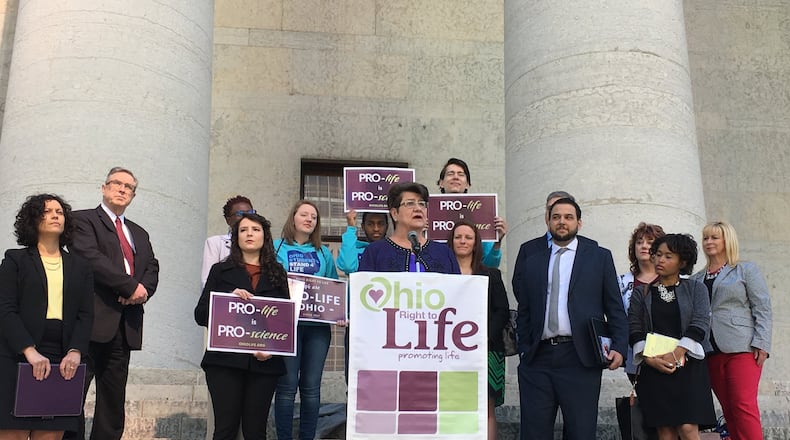Dr. Anita Somani, an Ob/Gyn in Columbus, said the bill is unethical, dangerous and medically inaccurate.
“Senate Bill 155 wages a dangerous misinformation campaign whose only apparent goal seems to be misleading and coercing patients who are making a private medical decision, and opening abortion providers to costly litigation,” said Dr. Somani.
Related: Can abortion be reversed? Pro-life says yes, Pro-choice says it’s junk science
The committee voted 8-4 in favor of the bill, setting it up for a possible floor vote in the coming days.
The committee also voted 9-3 in favor of Senate Bill 208, which would require health care providers to administer medical care to an infant that survives an attempted abortion, give the mother the right to sue the person who fails to provide that care, and require doctors to report to the state instances of an attempted abortion results in a live birth.
Current state law prohibits abortions after 20 weeks gestation.
Lehner described “very unusual circumstances but perfectly possible” circumstances in which a doctor miscalculates the actual weeks gestation and attempts an abortion at 24 weeks and a baby could be viable.
Advocates for access to abortion services say the bill is unnecessary since failure to provide medical care is already a felony. Opponents of abortion say more protections are needed in state law.
Related: Federal lawsuit filed to challenge Ohio’s heartbeat abortion ban law
In April, Ohio passed a new law that bans abortions once a fetal heartbeat is detected, which can be as early as six weeks gestation before a woman may know she is pregnant. The law has been put on hold while it is contested in federal court.
About the Author


